
Matt Quintana
I am currently a PhD candidate in Biblical Studies (Old Testament) at McMaster Divinity College in Hamilton, Ontario. I also serve as one of the site admins for bestcommentaries.com.
Occupation
PhD Student
Education
MDiv (Multnomah Biblical Seminary), BA (Multnomah University)
Libraries
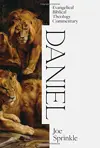

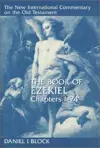


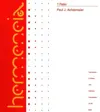

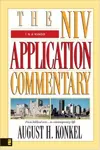

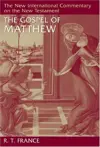

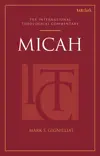

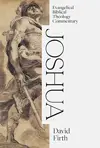

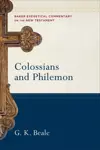

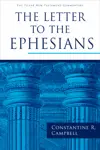

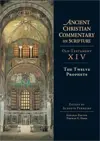

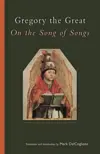

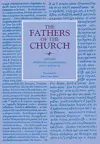

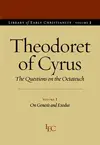

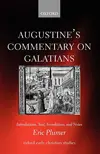

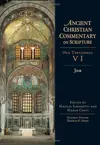

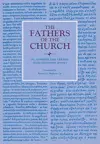

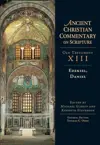

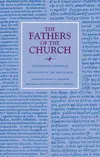

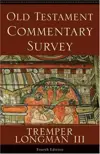

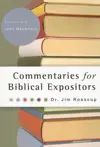

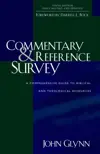

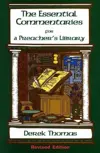



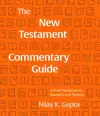

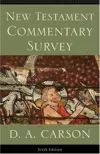



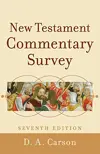

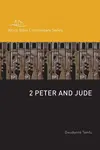

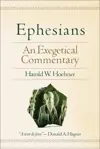

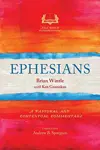

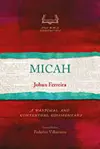

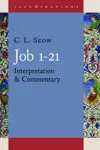

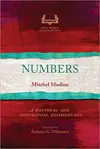

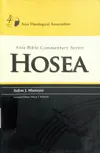

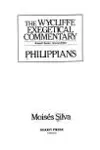





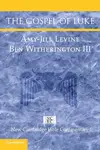

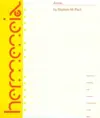

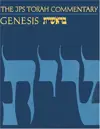

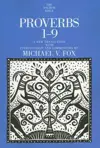


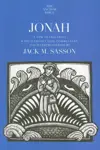

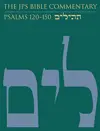

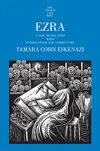

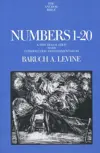


Reviews
The Letter to the Galatians. NICNT. Eerdmans, 2018.
This is an excellent contribution to the highly regarded NICNT series. DeSilva shows himself to be a careful exegete, abreast on recent scholarly debate, while still managing to deliver a coherent exposition of the letter's theological significance that will prove helpful for those preparing to preach on the text of Galatians. While the 100-page introduction is, in my opinion, a bit excessive for a book the size of Galatians, deSilva is nevertheless to be commended for his thorough engagement with key issues in contemporary scholarship. A unique feature of the commentary is the author's emphasis on tracing the rhetorical strategy and force of Paul's argument, which leads to many insights as deSilva tracks Paul's flow of thought within individual paragraphs and across the epistle as a whole.
Arnold, Clinton E. ed. Galatians. ZECNT. Zondervan, 2010.
Schreiner provides a solid exegetical commentary that largely defends a traditional Reformed reading of the letter. The overview and summary provided for each major section is helpful, especially for preaching and teaching on Galatians, and Schreiner does a fine job of tracing the message of the letter as a whole. The commentary is also filled with biblical-theological insights—no doubt reflecting the fruits of the author's other scholarly labors, as Schreiner has previously published top-notch works in biblical theology of Paul, the New Testament, and the entire Christian canon.
The Book of Revelation. NIGTC. Eerdmans, 1998.
Among commentaries on Revelation, Greg Beale's work in the NIGTC series is still unmatched in terms of its depth and comprehensiveness—perhaps rivaled only by Koester (AYB) and Aune (WBC). However, in contrast to the other two, Beale's commentary provides more than technical analysis of the Greek text, also offering keen insight into the abiding theological message of the text for contemporary readers receiving Revelation as inspired Scripture (these practical elements are even more pronounced in the condensed version of Beale's commentary). Where Beale outshines all other commentaries on the Apocalypse is in his attention to the use of the Old Testament in the book. Leaving no potential intertextual allusion untouched, even his less convincing proposals are clearly informed by a scrupulous analysis of the relevant texts.
The Book of Ecclesiastes. NICOT. Eerdmans, 1997.
Contrary to many, I find myself extremely unenthused by Longman's commentary on Qoheleth. Though Longman is quite useful for his technical notes on translation and difficulties in the Hebrew text, in my opinion, his work is not very helpful when it comes to articulating the message of the book as a whole. For me, his position—basically, that the "unorthodoxy" of Qoheleth is only salvaged by the "frame narrator" at the end of the book—strips 99% of the book of its relevance for today. Therefore, especially for pastors and teachers, I would recommend turning to another commentary (especially Bartholomew) for insight into the book's abiding theological significance.
Isaiah 1–27. 3 Vols. ICC. T&T Clark, forthcoming.
Hugh Williamson's work in the renown ICC series is now the critical treatment of these chapters of Isaiah. Leaving no stone unturned, his two volumes on chapters 1–5 (2006) and 6–12 (2018), have already become essential reading for academic study of Isaiah. The completion of Williamson's work on Isaiah 1–27 is highly anticipated, and I only wish he could complete ICC volumes that cover the entire Isaianic corpus (though at this rate, he would need another lifetime to do so!).
Song of Songs. NICOT. Eerdmans, 2001.
Longman's commentary, as with his volume on Ecclesiastes in the NICOT series, is very useful for his technical notes on translation and difficulties in the Hebrew text. However, I found his work less helpful from a biblical-theological perspective. Spurning the lengthy history of symbolic or allegorical readings of the Song, Longman advocates strongly for what he terms the "natural" interpretation of the book, in which the Song of Songs is viewed as a sort of "erotic psalter." Occasionally, the proposed interpretations are simply bizarre. The author seems to uncover a sexual euphemism behind every bush and an erotic metaphor around every corner. The commentary is fairly technical, and is definitely short on practical theological reflection. In my opinion, one must reckon much more seriously with the fact that for almost 2,000 years, the kind of "natural reading" advocated for by Longman was ubiquitously rejected by Jewish and Christian interpreters alike. Perhaps they were wrong; but perhaps it is the stream of approaches initiated in post-Enlightenment historical-critical scholarship that have been mistaken. In my opinion, despite his push for some kind of "canonical" reading of the Song within the broader canon, Longman's approach fails to consider the implications of the larger canonical shape and context of the Hebrew Bible for reading Canticles.
Isaiah 1–5. ICC. T&T Clark, 2006.
Hugh Williamson's work in the renown ICC series is now the critical treatment of these chapters of Isaiah. Leaving no stone unturned, his two volumes on chapters 1–5 (2006) and 6–12 (2018), have already become essential reading for academic study of Isaiah. The completion of Williamson's work on Isaiah 1–27 is highly anticipated, and I only wish he could complete ICC volumes that cover the entire Isaianic corpus (though at this rate, he would need another lifetime to do so!).
Isaiah 6–12. ICC. T&T Clark, 2018.
Hugh Williamson's work in the renown ICC series is now the critical treatment of these chapters of Isaiah. Leaving no stone unturned, his two volumes on chapters 1–5 (2006) and 6–12 (2018), have already become essential reading for academic study of Isaiah. The completion of Williamson's work on Isaiah 1–27 is highly anticipated, and I only wish he could complete ICC volumes that cover the entire Isaianic corpus (though at this rate, he would need another lifetime to do so!).
Revelation: A Shorter Commentary. Eerdmans, 2015.
Greg Beale's Revelation commentary in the NIGTC series is unmatched in terms of its depth and comprehensiveness. However, at over 1,300 pages, it is far beyond the capacity of many pastors, and its technicality scares many away. Enter this "shorter" commentary. Now, at nearly 600 pages, this work is still not small, but it is far and away more accessible and easy to use (not to mention that is also much cheaper!). The exhaustive and impressive exegetical work of the original volume is included, though it is summarized and consolidated, repackaged in a format that is much easier to digest. There are no footnotes or technical excursuses, and after a short introduction, the commentary proceeds section by section through the entire book.
One helpful feature of the work is that each unit contains a one sentence summary/main idea statement. These are found at the beginning of large sections, spanning several chapters, as well as at the start of smaller units, consisting of a handful of verses. Additionally, there are theological and pastoral reflections aiding in application included for each major unit.
Beale is a leading authority on the New Testament's use of the Old, and his scholarly work on the use of the Hebrew Bible in Revelation shines through here. Not everyone will agree with his interpretations or intertextual proposals, but it is clear that all of his ideas are exegetically informed and arise from a close study of the Greek text.
Overall, Beale offers a coherent and compelling case for an amillennial interpretation of the book. His work is theologically sensitive and canonically informed, and will provide any student of the Apocalypse with more than enough to sink their teeth into. This should be a top priority commentary for any preacher or teacher of John's Revelation, especially if they are unable to tackle the technicality of his offering in the NIGTC series.
One helpful feature of the work is that each unit contains a one sentence summary/main idea statement. These are found at the beginning of large sections, spanning several chapters, as well as at the start of smaller units, consisting of a handful of verses. Additionally, there are theological and pastoral reflections aiding in application included for each major unit.
Beale is a leading authority on the New Testament's use of the Old, and his scholarly work on the use of the Hebrew Bible in Revelation shines through here. Not everyone will agree with his interpretations or intertextual proposals, but it is clear that all of his ideas are exegetically informed and arise from a close study of the Greek text.
Overall, Beale offers a coherent and compelling case for an amillennial interpretation of the book. His work is theologically sensitive and canonically informed, and will provide any student of the Apocalypse with more than enough to sink their teeth into. This should be a top priority commentary for any preacher or teacher of John's Revelation, especially if they are unable to tackle the technicality of his offering in the NIGTC series.
The Pentateuch as Narrative: A Biblical-Theological Commentary. LBI. Zondervan, 1995.
This commentary is exceptionally useful for any study of the first five books of the Bible. John Sailhamer masterfully weaves a close exegesis of the Hebrew text with compositional analysis, biblical theology, and theological interpretation. The result is a first-rate work on the Pentateuch. The introduction, though long, lays out the methodological groundwork for this work, which is helpful for readers and offers a compelling way forward for reading and understanding the Torah. (As a bonus, his hermeneutical insights regarding, e.g., text vs. event are beneficial for constructing an overarching interpretive method for the Bible.) Though concise and quite accessible overall, there is significant depth to Sailhamer's work. I highly recommend it for anyone teaching or studying the Pentateuch.
P.S. One would also benefit from consulting Sailhamer's magnum opus The Meaning of the Pentateuch (IVP Academic, 2009). It is worth its weight in gold—which, given the book's size, is saying something!
P.S. One would also benefit from consulting Sailhamer's magnum opus The Meaning of the Pentateuch (IVP Academic, 2009). It is worth its weight in gold—which, given the book's size, is saying something!
The Meaning of the Pentateuch: Revelation, Composition and Interpretation. IVP Academic, 2009.
Brilliant. Monumental. Paradigm-shifting. John Sailhamer's magnum opus and final academic achievement before his untimely passing is a tour de force in not only Pentateuchal studies, but in exegesis, hermeneutics, compositional analysis, and biblical theology. It has the potential to transform one's understanding of the Pentateuch, along with one's reading of the entire Bible.
It is not just for the "theological uber geek." John Piper's exhortation is appropriate: "To all pastors and serious readers of the Old Testament—geek, uber geek, under geek, no geek—if you graduated from high school and know the word “m e a n i n g,” sell your latest Piper book and buy Sailhamer. There is nothing like it. It will rock your world. You will never read the 'Pentateuch' the same again. It is totally readable. You can skip all the footnotes and not miss a beat."
This book is very long and is extremely dense. It will require thoughtful engagement and extended commitment. However, the payoff will be magnificent. Take up and read! You will not regret it.
It is not just for the "theological uber geek." John Piper's exhortation is appropriate: "To all pastors and serious readers of the Old Testament—geek, uber geek, under geek, no geek—if you graduated from high school and know the word “m e a n i n g,” sell your latest Piper book and buy Sailhamer. There is nothing like it. It will rock your world. You will never read the 'Pentateuch' the same again. It is totally readable. You can skip all the footnotes and not miss a beat."
This book is very long and is extremely dense. It will require thoughtful engagement and extended commitment. However, the payoff will be magnificent. Take up and read! You will not regret it.
Ecclesiastes. BCOT. Baker Academic, 2009.
This is all around the best commentary on Ecclesiastes available. In this outstanding contribution to the Baker Commentary on the Old Testament, Craig Bartholomew combines masterful exegesis with thoughtful and mature theological reflection. The commentary is readable and very accessible to the pastor or motivated lay-person without a knowledge of Hebrew. However, don't be fooled: Bartholomew packs major exegetical depth into this work. His overall take on the book is provocative and compelling, and his interpretation is undergirded with canonical sensitivity and theological instincts. He helpfully avoids the pitfalls of an entirely negative reading of Qohelet (contra, e.g., Longman) and does not make artificial or unfounded leaps in order to advance his interpretation of the book as a whole. If you are preaching, teaching, or studying this book, Bartholomew's commentary is a must have.
A Commentary on the Book of the Twelve: The Minor Prophets. KEL. Kregel Academic, 2018.
Michael B. Shepherd should be commended for his groundbreaking analysis of the "Minor Prophets" as a single, unified composition. He offers penetrating insight into the "Book of the Twelve" while maintaining lucid brevity. While more in-depth and exhaustive commentaries exist on each of the individual prophets, no other commentary offers such an articulate and compelling case for a compositional approach to this corpus. Legitimate hermeneutical practice requires attention to the context above all else; Shepherd proves that no faithful interpretation of say, Micah, can afford to neglect the surrounding "chapters" within the "Book" of the Twelve and the compositional strategy in which Micah is entrenched. The introduction of this volume alone is worth the price of the book. Overall, this commentary is indispensable for any study and preaching of the books which make up the "Minor Prophets," and also paves the way for further scholarly analysis on the composition of the Twelve.
Isaiah 1-39. Int. Westminster John Knox, 1993.
This is a phenomenal commentary on the complexities and riches of Isaiah 1–39. Combining rigorous and astute exegesis with penetrating theological reflection, Seitz's work is concise yet substantive; accessible yet insightful. While abreast of critical scholarship and technical discussion, Seitz helpfully keeps his primary focus on the canonical form of the book of Isaiah, the authoritative text of the community of faith. In keeping with the aim of the Interpretation commentary series, Seitz's contribution will be of great help to the pastor or teacher of Isaiah, and is accesible to those even without an academic background. I have found this commentary to be one of the most helpful works on Isaiah 1–39 and would strongly commend it to all preachers, teachers, and laity interested in serious study of the book of Isaiah.
N.B. Though Seitz himself is not to blame for this, my one complaint is that this author did not also write the volume on Isaiah 40–66 in the same series—which is especially unfortunate in light of the low-quality of that volume.
N.B. Though Seitz himself is not to blame for this, my one complaint is that this author did not also write the volume on Isaiah 40–66 in the same series—which is especially unfortunate in light of the low-quality of that volume.
Isaiah. OTL. Westminster John Knox, 2000.
This is a monumental commentary on the book of Isaiah. Like all of his work, Childs's commentary is erudite and exhibits impressive command of the scholarly field. He combines rigorous exegesis with powerful theological reflection, all with an ear towards the history of Isaiah's interpretation and it impact on both past and present communities of faith. Childs's work is concise yet substantive; accessible yet insightful. While "fluent" in critical scholarship and technical discussion, Childs helpfully keeps his primary focus on the canonical form of the book of Isaiah, the authoritative text for confessional faith communities. Even if one were to skip over his discussions of technical matters, there is much to be gleaned from only engaging his expositions.
The commentary could be criticized for being too concise in certain areas, and there are certainly more detailed commentaries on Isaiah available. The beauty of this volume, though, is that it keeps one from getting lost in the "weeds" of all the scholarly debate on Isaiah while still providing an informed and persuasive reading of the text. Overall, I would rank this as the best volume commentary on the entire book of Isaiah available. Whether engaging in exegesis of the Hebrew text or preparing a sermon, I find that consulting Childs is always worth my time. This commentary should be on the shelf of all preachers and teachers of Isaiah, and really, anyone interested in serious study of the book.
The Sermon on the Mount and Human Flourishing: A Theological Commentary. Baker Academic, 2017.
Must-have resource for anyone studying the Sermon on the Mount, as well as anyone preaching or reaching on it. Pennington's work is brimming with exegetical, theological, and practical insight. By far the most insightful and stimulating resource I encountered while studying Matthew 5–7 for a sermon series.
